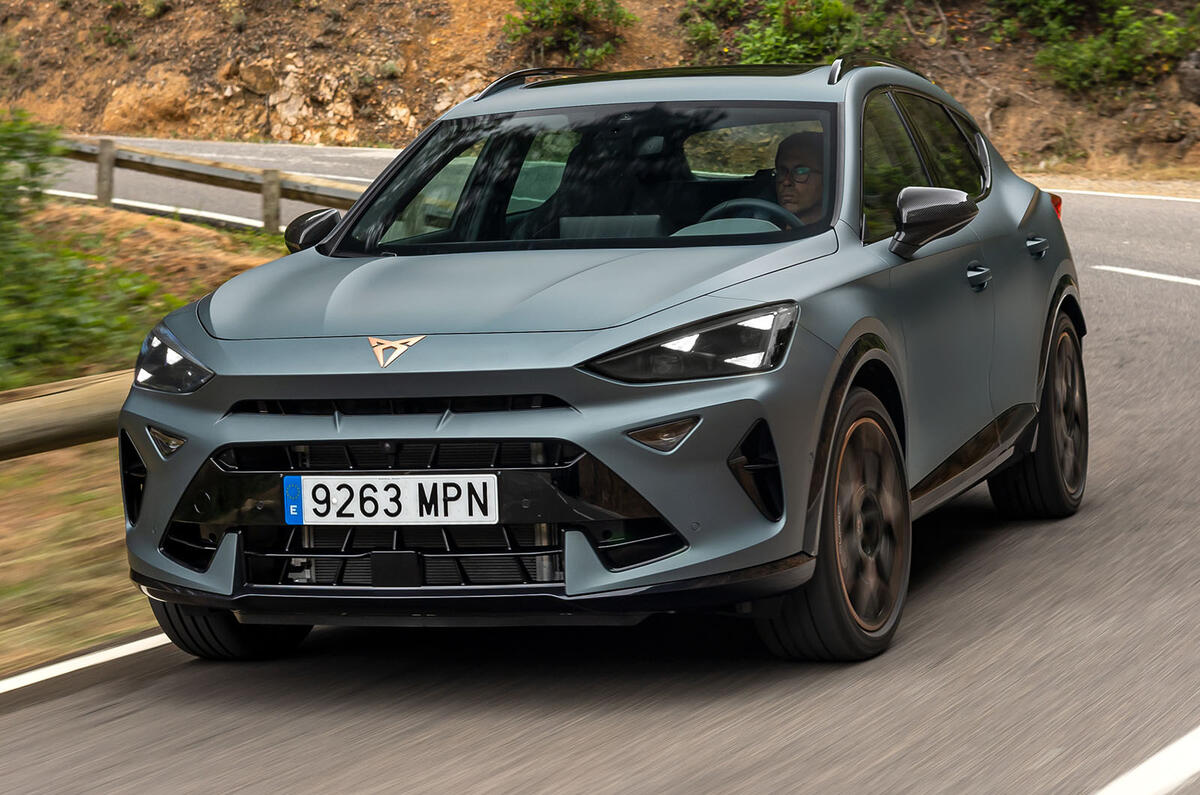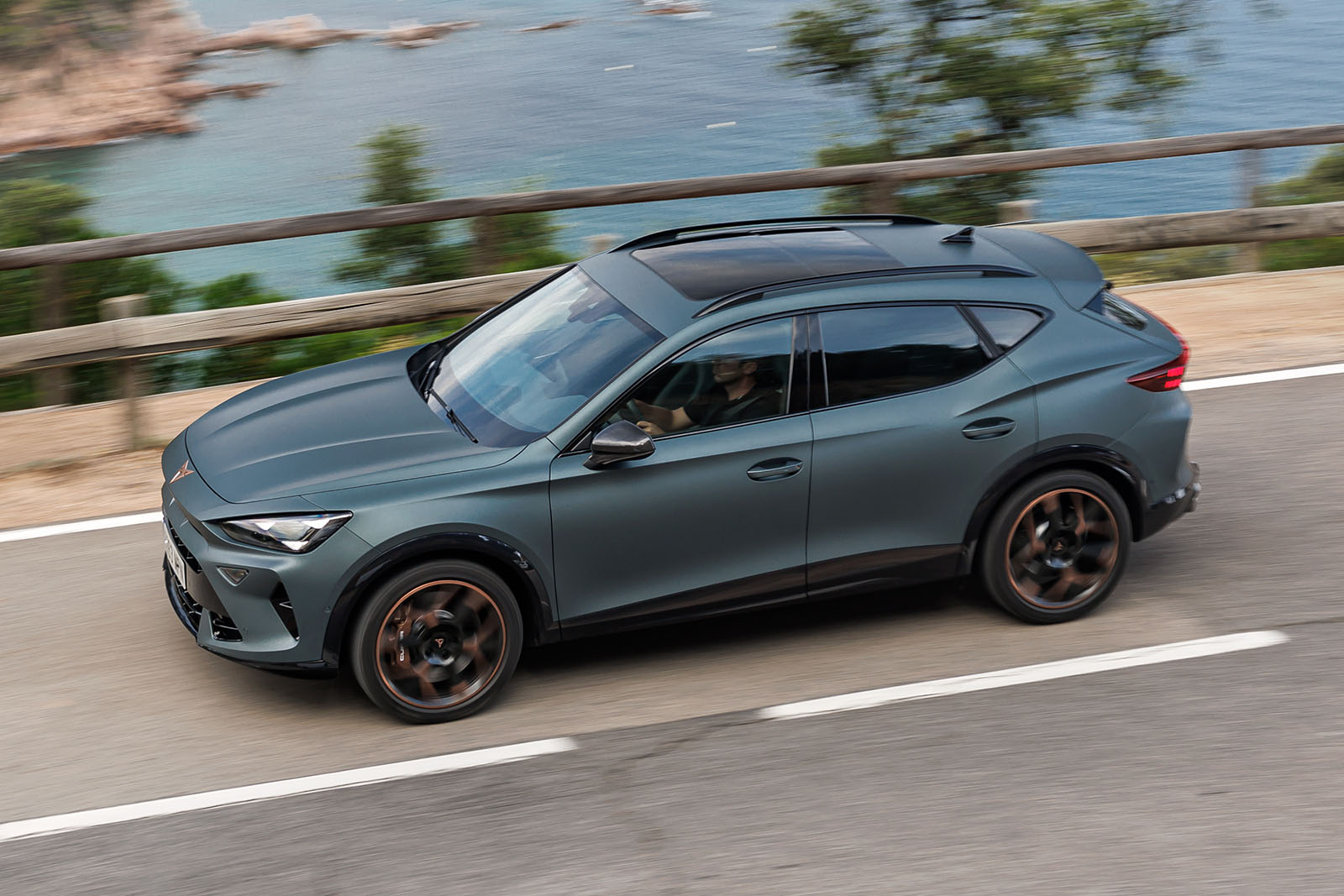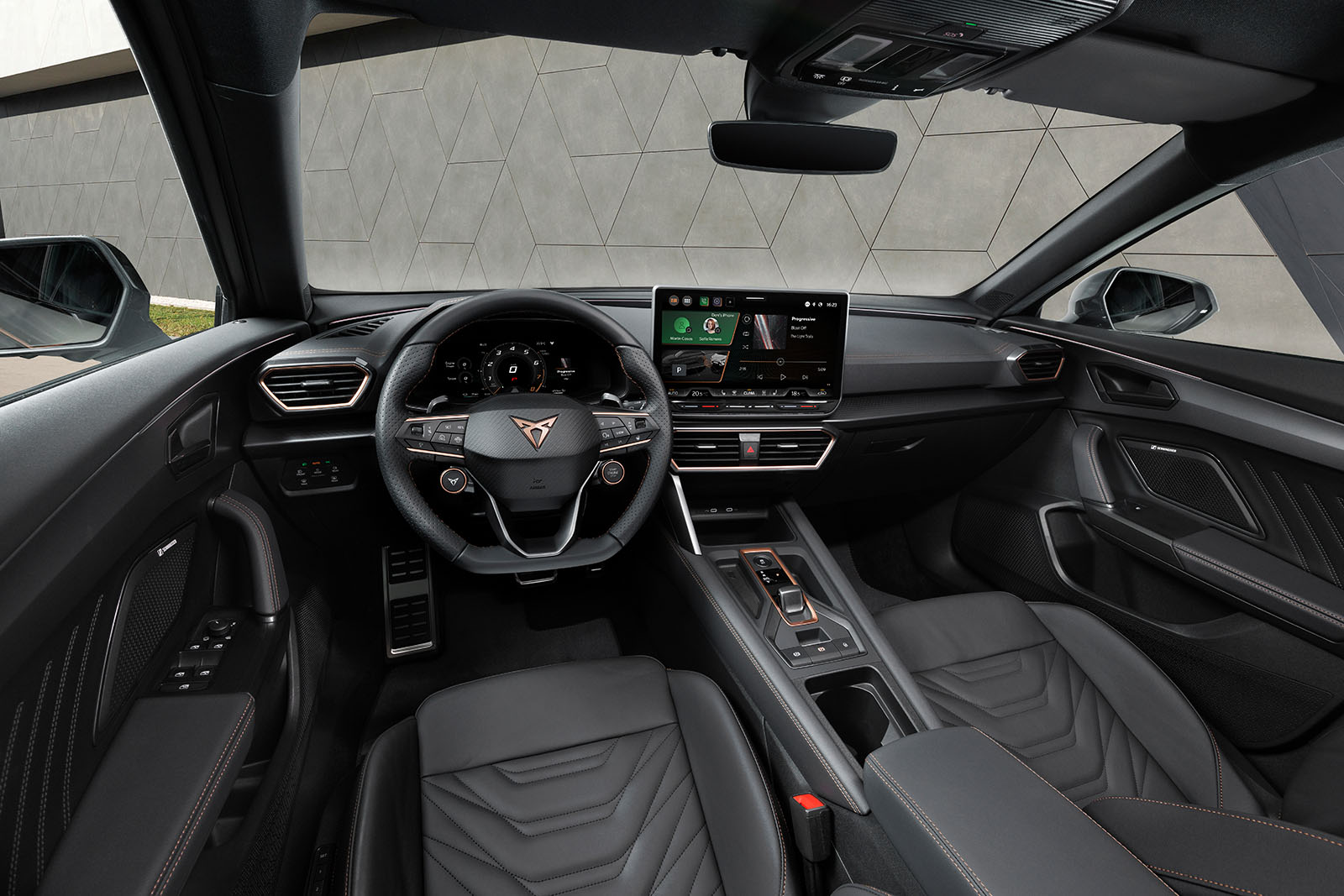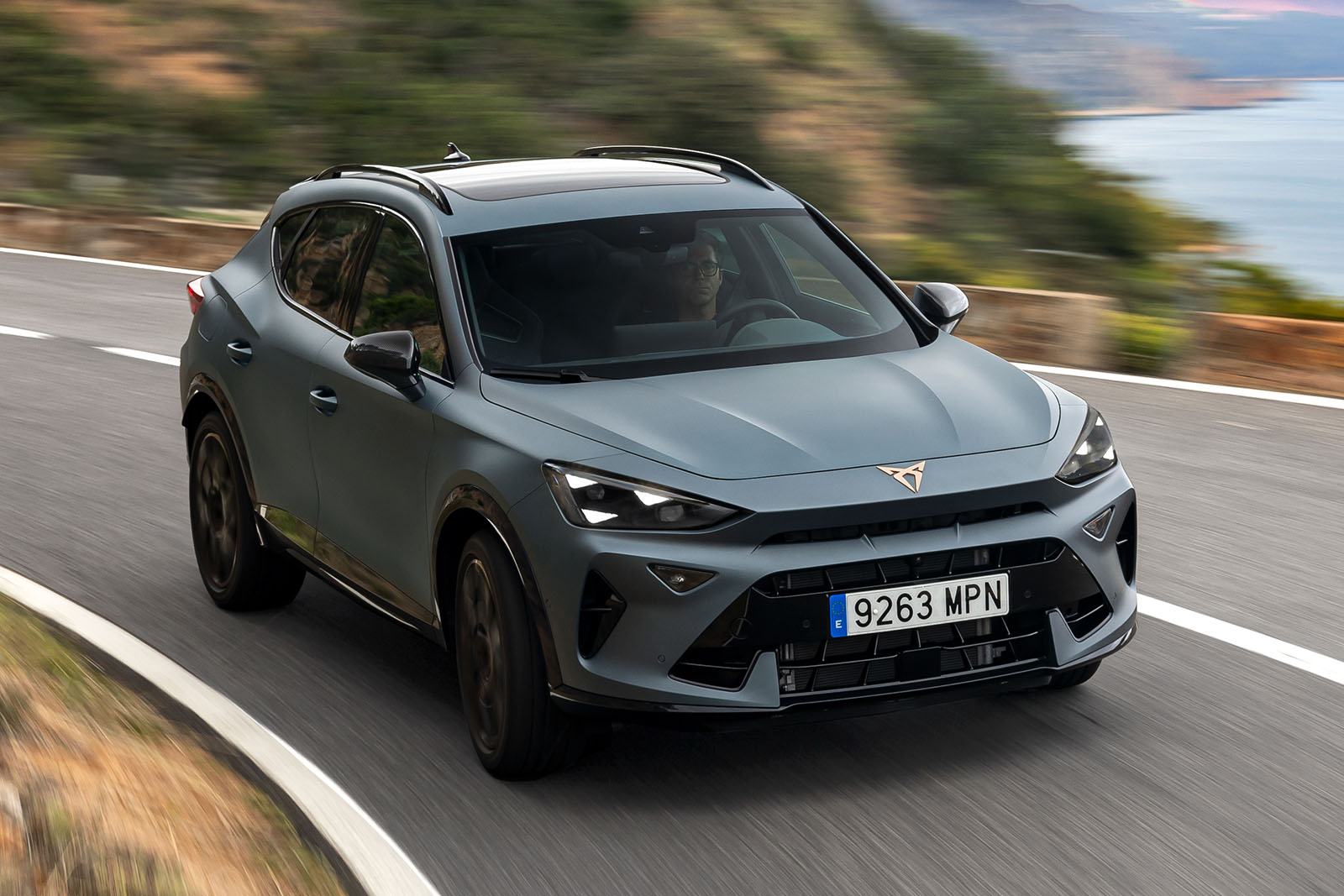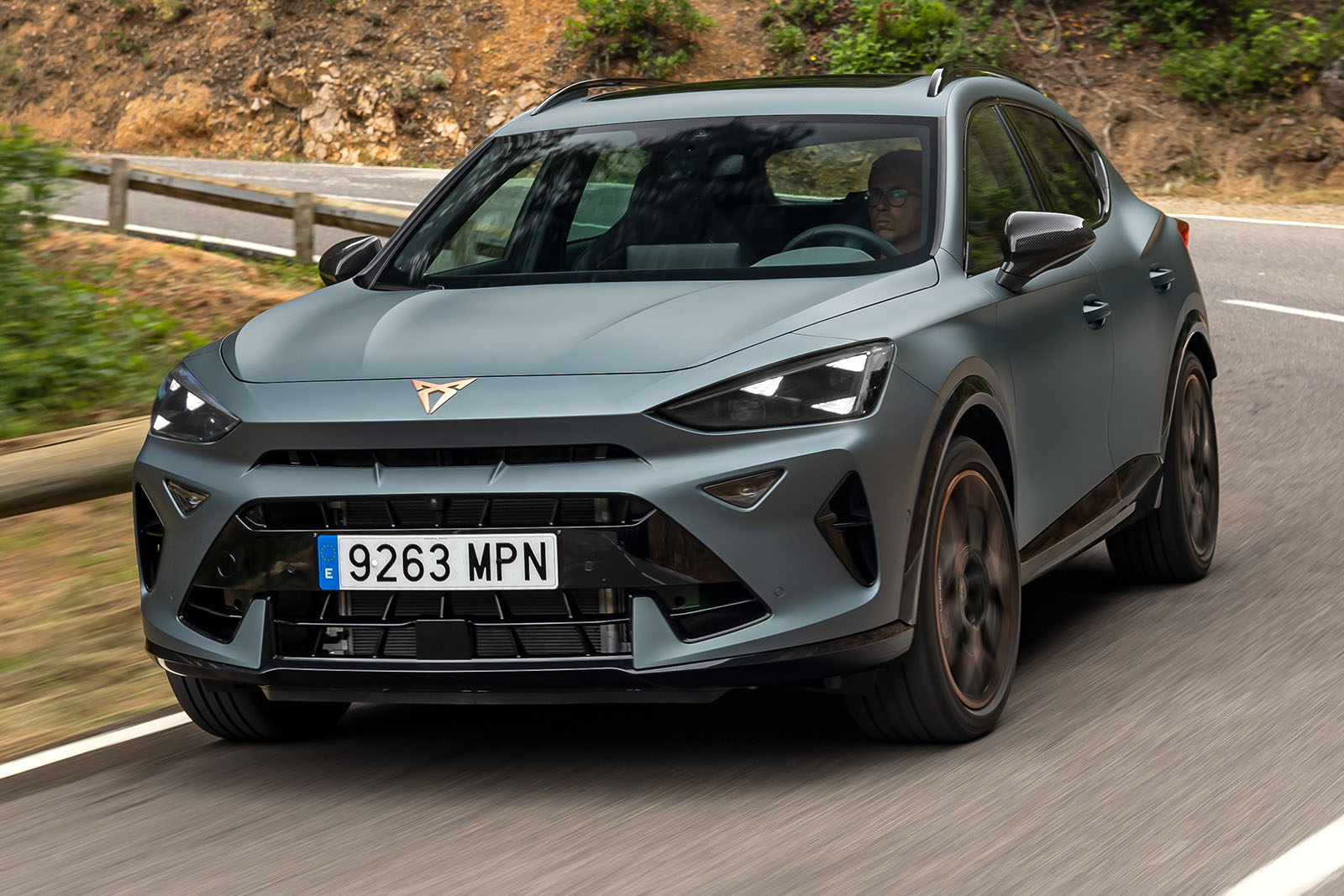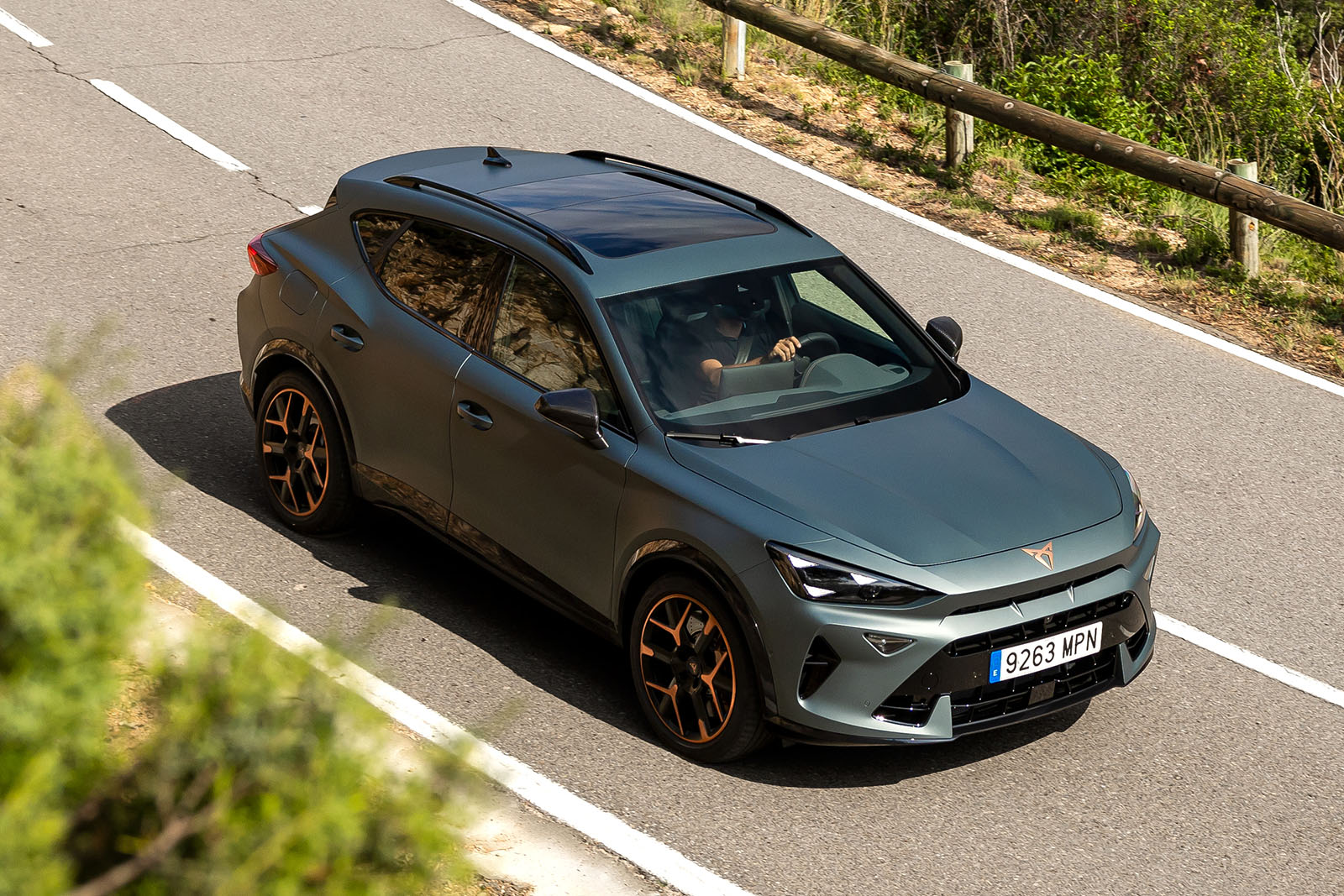Car makers are increasingly trying to tempt younger buyers with left-field cars. Forget traditional boxy SUVs: these drivers want svelte lines and interesting, curvy designs. Cue the Cupra Formentor.
Cupra has a notable interest in this type of customer, judging by how much it talks about video games, being "future-facing" and "defying every 'should' in the book".
To a point, the cars do live up to that talk. They're all available with powerful engines and feature sharp, angular designs and undeniably racey interiors punctuated by a signature bronze trim.
The Formentor set the Cupra brand on this path, being its first model that wasn’t based on a Seat and one of its best-sellers: more than 120,000 were delivered worldwide last year.
Now it has received a wide-reaching update encompassing its exterior design, engine line-up and interior, all of which is designed to keep it fresh in the eyes of - especially younger - customers. And given that the average age of a Formentor buyer is 10 years younger than in the rest of the crossover segment, there’s a lot at stake.
The Cupra Formentor line-up at a glance
No matter which version you go for, performance from each of the engines available is strong.
The range kicks off with a 148bhp mild-hybrid 1.5-litre turbocharged four, which is paired with a six-speed manual gearbox and front-wheel drive.
Starting at £27,604, the Formentor costs more than the Renault Arkana but nearly £13,000 less than the BMW X2. I'is available in V1, V2 and V3 trims or racier VZ1, VZ2, and VZ3 trims.



